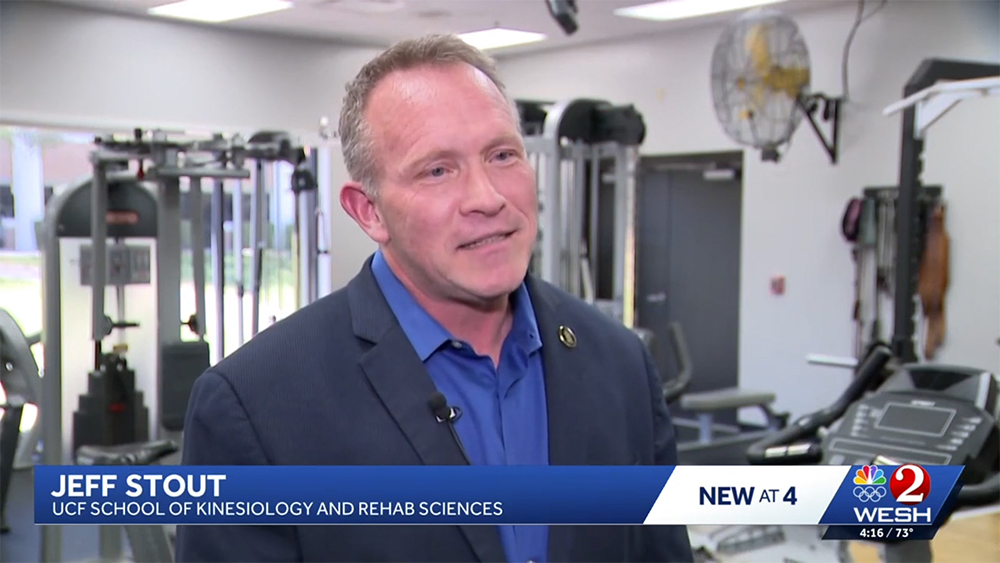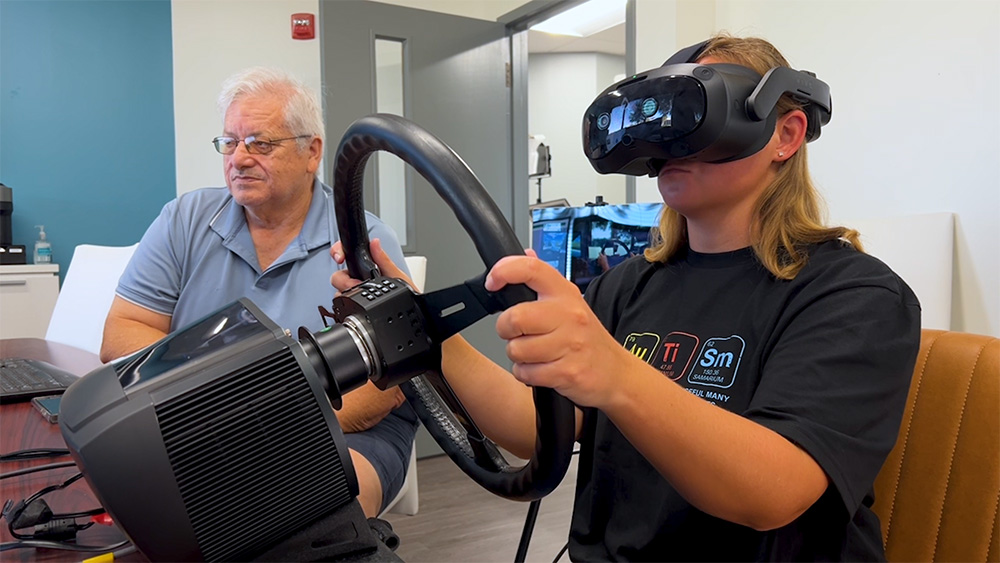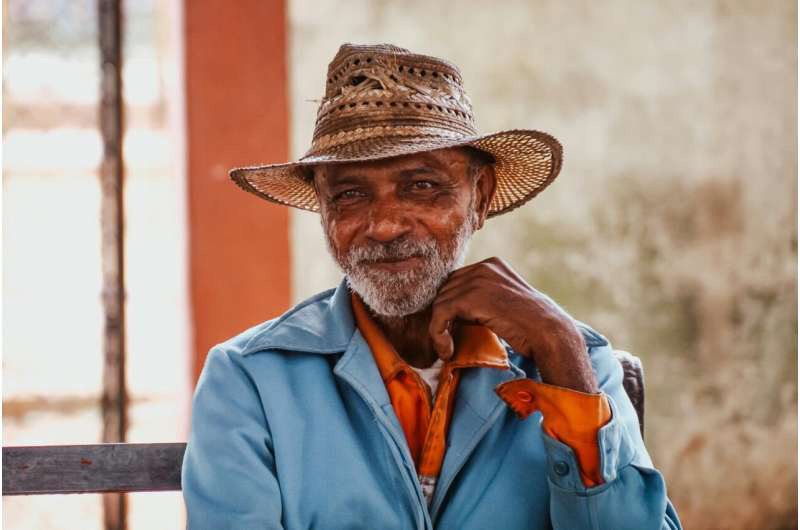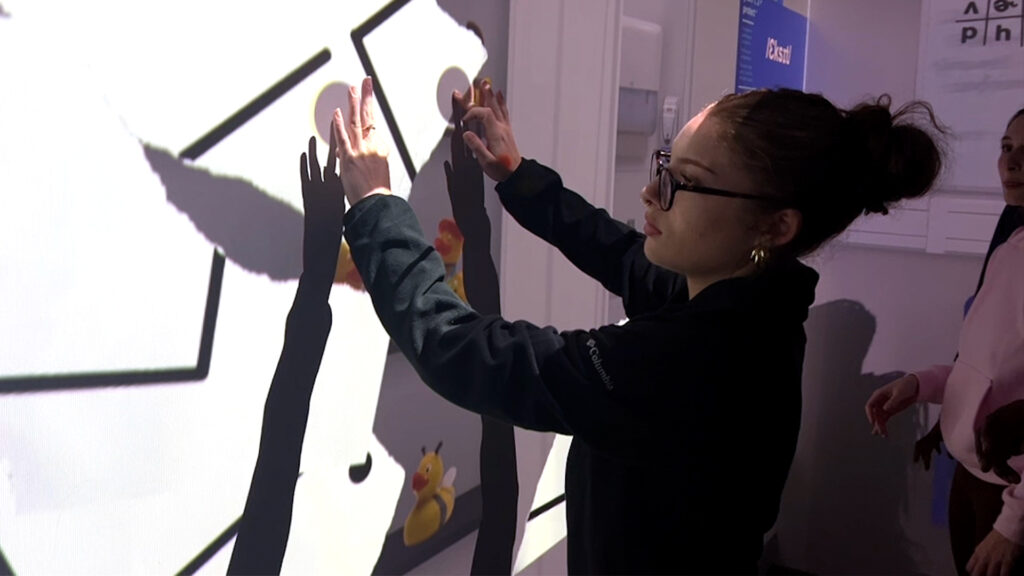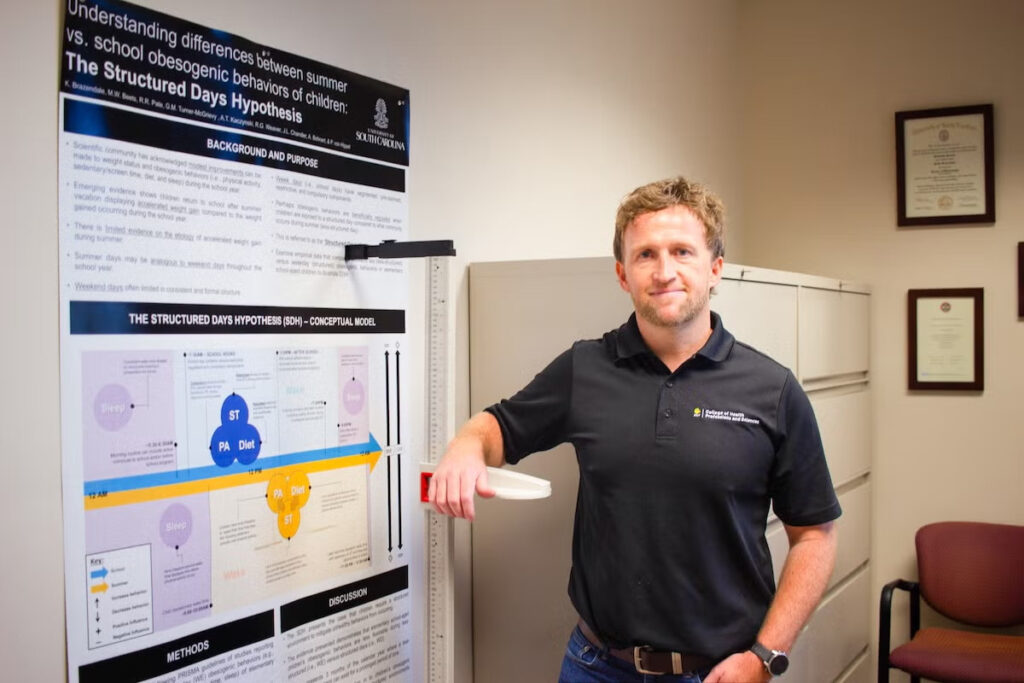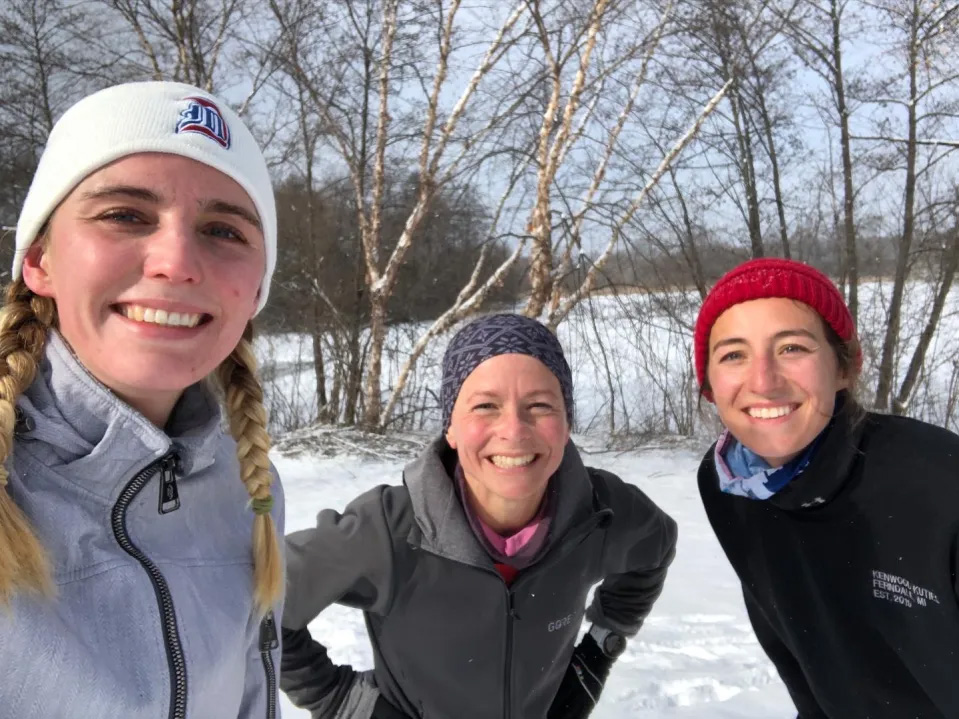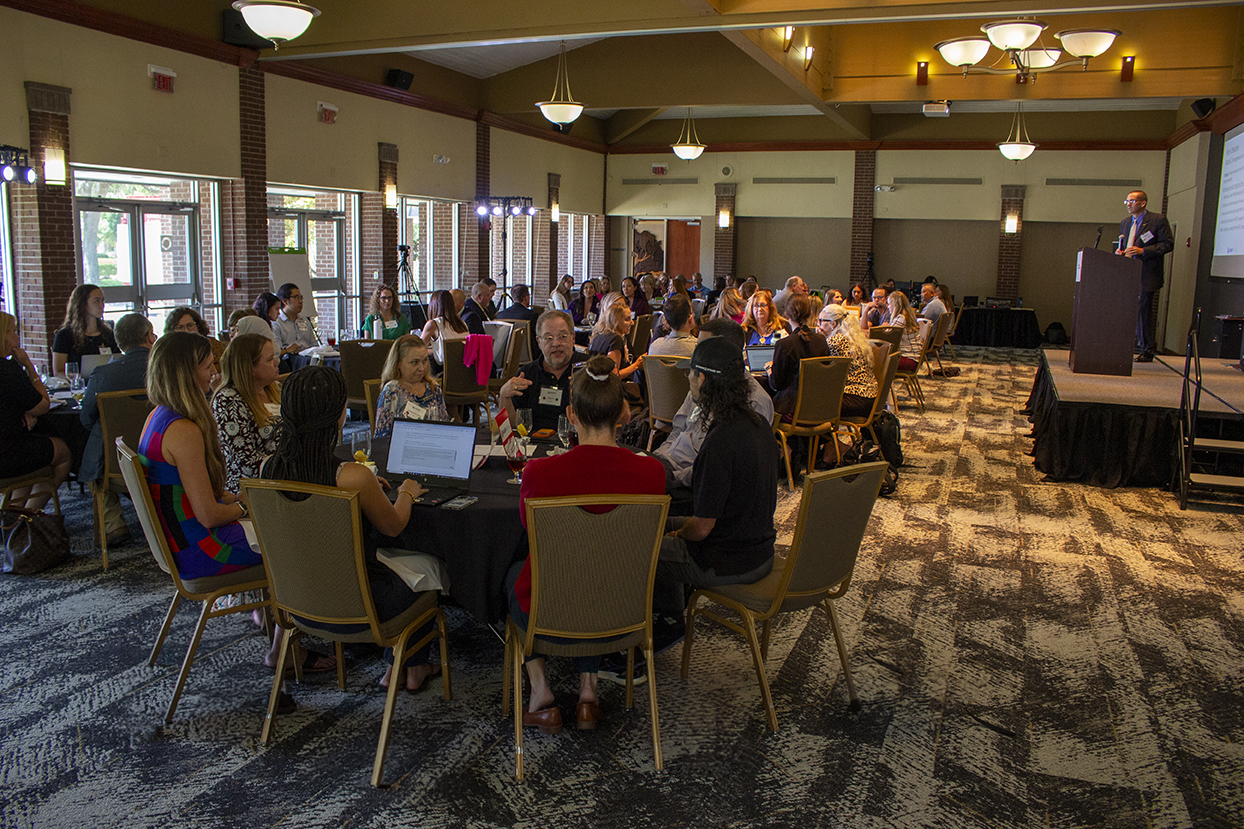
Academia and healthcare leaders convened at UCF on May 23 for a regional summit designed to improve collaboration and develop new strategies for ensuring the talent pipeline continues to provide competent and compassionate future healthcare professionals proficient in delivering team-based care.
Hosted by the College of Health Professions and Sciences (CHPS) in partnership with the Association for Schools Advancing Health Professions (ASAHP), the summit brought together more than 60 participants from central Florida and across the state. Attendees included healthcare leaders from the area’s major hospital systems; key partners and preceptors in community wellness and rehabilitative care; and administrators, faculty and clinicians from public and private Florida universities.
The summit theme was “Collaboration in Action – Engaging to Build Readiness for Interprofessional Clinical Practice.”
“It’s incredibly valuable to have so many key partners, thought leaders and experienced practitioners come together to share knowledge and best practices and we’re pleased to play such an important convening role for central Florida and beyond,” says CHPS Founding Dean Chris Ingersoll. “Hosting this summit presented a unique opportunity to explore new ways to ensure our students are prepared to work across disciplines to improve patient care.”
During the half day event, attendees participated in breakout sessions in which they reacted to a national survey addressing healthcare workforce readiness and discussed ideas for strengthening interprofessional education within higher education and clinical practices.
The summit at UCF was one of six taking place in-person and concurrently at five additional ASAHP member institutions across the country. The summits culminated in a virtual “harvest” session during which all regional hubs provided a briefing, enabling a live, national-level conversation.
Some of the themes and ideas discussed included: exploring a core curriculum that encompasses team-based care, expanding student access to interdisciplinary instruction and case studies; gaining institutional-level support and identifying additional resources that are dedicated to interprofessional practice opportunities; offering conflict resolution training; and improving awareness about interprofessional education.
“It’s clear there is a high level of commitment to advancing interprofessional education and collaborative practice both in academia and clinical practice,” Ingersoll says. “The conversations held have enabled us to better understand one another’s roles and responsibilities and serve as a strong foundation for future action. Together, we’ll continue to prioritize building bridges from our classrooms to our internships and field experiences and ultimately to the professional world.”
The summit focused on readiness in the Interprofessional Education Collaborative (IPEC) Core Competencies for Interprofessional Collaborative Practice: Version 3. These include: maintaining a climate of shared values, ethical conduct and mutual respect; using one’s own role and team members’ expertise to address individual and population health outcomes; responsive, responsible, respectful and compassionate communication between team members; and applying the values and principles of the science of teamwork to adapt one’s own role in a variety of team settings.
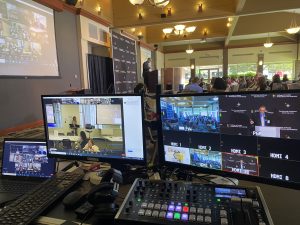
The other hub locations included: Seton Hall University; University of Alabama at Birmingham; University of South Dakota; University of Utah and Weber State University (co-hosts); and University of Texas (UT) Medical Branch, UT MD Anderson Cancer Center and UT Health San Antonio (co-hosts).
The UCF attendees included administrators and faculty from the College of Medicine, Department of Health Sciences, School of Social Work, School of Communication Sciences and Disorders, School of Kinesiology and Rehabilitation Sciences, and the Center for Autism and Related Disabilities.
School of Social Work Director Matthew Theriot served as the discussion facilitator.
“Effectively preparing our students entails providing them with both the essential knowledge and foundational skills for success, empowering them with opportunities to learn from and with each other across clinical service lines,” says Associate Dean of Clinical Affairs Bari Hoffman, who served as the site coordinator. “In today’s healthcare environment, that means readying them to understand the roles of others on a healthcare team, and preparing them to provide collaborative, empathetic and timely care.”
This year was the fourth year ASAHP has led national summits, which are aimed at creating a shared framework and specific strategies for improving interprofessional learning experiences, ultimately with the goal of providing better patient outcomes. The feedback from the summits, along with pre and post surveys, provide key data used in research studies that assess the progress of interprofessional education across the country.

